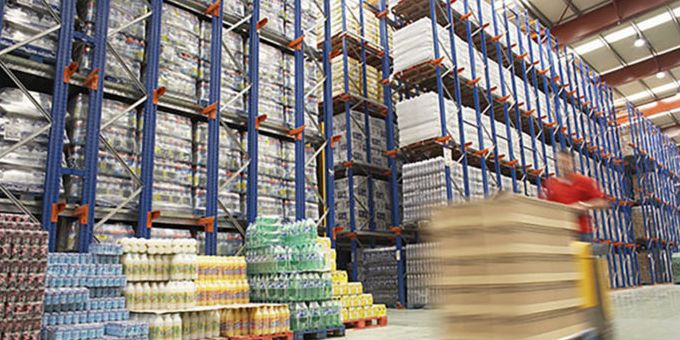During these unprecedented times, it is of utmost importance to keep packaging lines moving, especially for manufacturers of essential consumer packaged goods (CPGs). There’s no way around it.
 Packaging is Essential in Time of Need
Packaging is Essential in Time of Need

Article from | ProMach
During these unprecedented times, it is of utmost importance to keep packaging lines moving, especially for manufacturers of essential consumer packaged goods (CPGs). There’s no way around it. Without it, goods can’t be protected, bundled, and boxed for shipment, or properly tracked for destination fulfillment, and the list goes on. From a CEO in the thick of things leading a packaging equipment manufacturing company, Mark Anderson feels it is his civic duty to do his part in helping uphold the supply chain. As he states on a recent UnPACKED podcast episode (Episode #21) hosted by PMMI, the Packaging Machinery Manufacturers Institute, “ProMach is a Tier-1 vendor to the consumer product industry and it’s our responsibility to try and keep the businesses running as much as we possibly can.”
What’s considered essential in CPGs isn’t exactly clear-cut and dry, but there’s no denying the list is long, having much to do with household staples that support human health, hygiene, and general comfort. In supporting the fight against COVID-19, major general merchandise retailers such as Amazon have committed to prioritizing the stocking and delivery of high-demand products. Their definition incorporates the categories of “Baby Products,” “Health & Household,” “Beauty & Personal Care,” “Grocery,” “Industrial & Scientific,” and “Pet Supplies.” But in the end, no matter what definition is followed, there’s a lot at stake. Especially in the food and beverage and pharmaceutical categories where product security means everything. Flexible packaging, for instance, protects products that consumers use every day. In an article released by the FPA (Flexible Packaging Association), it points out that these include hermetically sealed food and beverage products such as cereal, bread, frozen meals, infant formula, and juice; as well as sterile health and beauty items and pharmaceuticals, such as aspirin, shampoo, feminine hygiene products, and disinfecting wipes. Even packaging for pet food uses flexible packaging to deliver fresh and healthy meals to a variety of animals.
And on top of that, now more than ever before, product lines outfitted for household staples and medical supplies must be running at peak performance in order to meet the surge in demand and help as many people as possible. That’s a lot of line pressure!
How essential are the business operations of a packaging equipment manufacturer? To give you an idea, here’s anecdotal evidence: Pharmaworks, a ProMach product brand and leading provider of blister packaging technology for the pharmaceutical, consumer goods, and contract packaging industries, received a call in late March from a pharma company using a competitive machine. The machine was down and they needed aftermarket support and new parts in a hurry. Without hesitation, the Pharmaworks team jumped into action. To source everything needed for this particular machine, they dug deep as these parts were hard to come by, especially since this machine didn’t originate from them. In exhausting all options for quick turnaround, they identified a few previous machine rebuilds they could repurpose, and the team was able to come away with everything needed that would allow the customer to get their machine operational overnight. And, as it turns out, the machine packaged a drug in the testing phase to treat the COVID-19 virus.
Additionally, a lot of companies are now changing up their production lines either by choice, force, or necessity to help battle the pandemic. Filling liquid hand sanitizer into bottles and flexible pouches that once were lines for perfumes and alcoholic beverages, for example, is our current reality, and these production lines require a service technician and engineering support for their changeovers and adjustments.
The content & opinions in this article are the author’s and do not necessarily represent the views of ManufacturingTomorrow
Comments (0)
This post does not have any comments. Be the first to leave a comment below.
Featured Product

